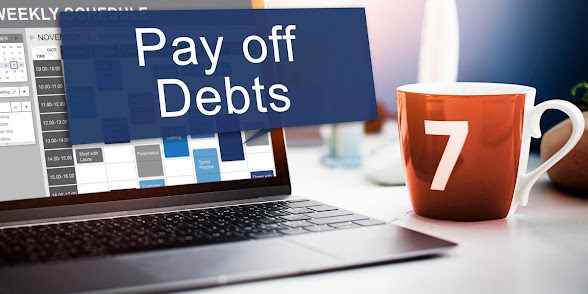How to pay off credit card debt
It's no secret that credit card debt can be a major burden, both financially and emotionally. If you're struggling to keep up with your credit card payments, you're not alone. In this article, we'll explore some strategies for paying off your credit card debt so that you can get back on track financially.
Here are some tips to pay off credit card debt
IVA
There are many options available for those struggling with credit card debt. One option is to enter into an IVA, or Individual Voluntary Arrangement.
An IVA is a formal agreement between you and your creditors to pay off your debts over a set period of time, usually 5 years. This may be a good option for you if you have a regular income and can afford to make monthly payments, but cannot afford to pay off your debts in full.
Your creditors will agree to freeze interest and charges on your debts, so that you can focus on repaying what you owe. You will make one monthly payment to your IVA provider, who will then distribute the funds to your creditors.
If you successfully complete your IVA, any remaining debt will be written off. This means that you could end up paying back less than you owe, although this will have a negative impact on your credit rating.
If you are struggling with credit card debt, an IVA may be worth considering. However, it is important to speak to a qualified financial advisor to ensure that it is the right option for you.
bankruptcy
If you're struggling to pay off credit card debt, you may be considering bankruptcy. Although it's a difficult decision, it may be the best option for getting out of debt. Here are a few things to keep in mind if you're considering bankruptcy:
1. Bankruptcy will stay on your credit report for 7-10 years. This means it will be difficult to get approved for new lines of credit during that time.
2. You will likely have to give up some of your assets, such as your home or car, in order to repay your debts.
3. After you file for bankruptcy, you'll need to follow a strict budget and make all your payments on time in order to rebuild your credit.
4. You may need to get a cosigner in order to get approved for new lines of credit after bankruptcy.
If you're considering bankruptcy, it's important to speak with an experienced bankruptcy attorney who can help you understand all your options and make the best decision for your situation.
debt settlement
If you're struggling to pay off credit card debt, you may be considering debt settlement. This is where you negotiate with your creditors to pay off your debt for less than what you owe. While this can be a good way to get out of debt, there are some things you need to know before you go down this road.
First, it's important to understand that debt settlement is not right for everyone. If you have the ability to pay off your debt in full, or even make significant progress on paying it down, then settlement is probably not the best option for you. That's because settling your debt will likely damage your credit score, which can make it harder to get a loan or new credit in the future.
Second, if you do decide to settle your debt, be prepared to pay taxes on the amount of debt that is forgiven. The IRS considers forgiven debt to be income, so you will need to report it on your taxes and pay taxes on that amount.
Finally, make sure you know what you're getting into before signing any contracts with a debt settlement company. There are some reputable companies out there that can help you settle your debts, but there are also some scams. Be sure to.
Debt consolidation
Credit card debt can be a real burden, but there are ways to get rid of it. One way is to consolidate your debt with a loan. This can help you get a lower interest rate and make one monthly payment instead of several. It's important to shop around for the best loan terms before you consolidate your debt. You don't like to end up paying more in the extended run. Another alternative is to work with a credit counseling service. They can help you develop a plan to pay off your debt and may be able to negotiate lower interest rates or waive fees. If you're not sure where to start, there are plenty of resources out there to help you get on the path to financial freedom.
Speak to a professional
If you're really struggling with debt, speaking to a financial advisor or debt management advisor can give you the guidance you need to get back on track.
For assistance with debt repayment, get in touch with Acme Credit Consultants right away. Call us today at +44 7779648018





Comments
Post a Comment